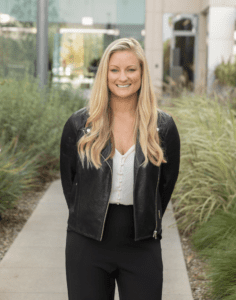CMO Roundtable: Visa, Personal Capital, AKT and Zoom Talk 2020 Marketing Trends
What’s on the mind of a modern marketer? Plen-ty. There’s data privacy and ethics. The landscape of marketing technology. Personalization. Establishing consumer trust. Ensuring a positive customer experience at all stops along the customer journey. And so much more. To shed light on how modern marketing chiefs prioritize the range of tasks they’re charged with today, and how marketing trends in 2020 are influencing their roles, we spoke with four CMOs, from Visa, Personal Capital, Zoom and boutique fitness brand AKT. Here’s a look into the minds of four executives at the top of their game—and what’s in store for marketing organizations in 2020 and beyond.
Chief Marketer: What are the biggest marketing trends you see for 2020? How will they impact your brand?
Lynne Biggar, Visa: First, I don’t see a slowing of the rapid pace of change we have experienced over this past decade. As we depart the 2010’s, we’ve seen a revolution in how consumers experience and engage with brands. Pull is more important than push. Enabling marketing technology is evolving rapidly. The social media decade has in many ways brought lots of advances; however, there is an increasing recognition of some of the challenges. Data privacy and ethics are important topics for all companies to consider.
As we move into 2020, I see an increasing conversation around data and ethics. Maintaining and growing consumer trust is paramount. Sensory branding will continue to play a huge role in marketing. Finding new brand expressions that reflect the changing world we live in is something every brand should be thinking about. And we all need to be thinking through how AI and AR can benefit us as marketers and help our audiences.

Porter Gale, Personal Capital: There are two key trends to watch for in 2020. First, an increased use of data to deliver personalized experiences. Because of our holistic approach at Personal Capital, our users and clients share their financial lives with us. This allows us to speak to their specific needs in a personalized way that is both relevant and adds value. Second, the expansion of reach and power of influencer programs and affiliate marketing. In terms of personalization, Influencer marketing will continue to grow stronger. We are grateful for the support we’ve received from financial influencers, bloggers and affiliates that we work with. Often their reach has been sparked by a true passion for personal finance or investing. As a result, content generated by influencers or affiliates we work with is contextually a relevant, persuasive and authentic way for brand messages to be delivered.
Tori Johnston, AKT: In 2020, high-quality content will continue to be instrumental for brands to showcase new and emerging products and experiences. Videos allow brands to have a sense of authority, while further explaining features and sharing the company’s mission, vision and personality. At AKT, we offer four very unique class types, and it can be hard to describe the feeling you get from taking a group exercise class without showing the movement and camaraderie, visually. As we introduce AKT to new markets we have to be able to showcase the uniqueness of the AKT workout in a way that is authentic, exciting and exudes positive energy. Video is the most effective way to do that.
Another trend that will continue is the heavy use wearable technology. In the fitness industry wearable technology is becoming increasingly common to enhance the class experience, but it is also a marketer’s dream. With the implementation of robust monitoring tools, personalization, gamification, and drip marketing all tied to a single data set, we are able to customize every interaction.
Janine Pelosi, Zoom: I think video is going to be number one. Marketing in general is going to be more video-focused, and more real-time in how content is delivered. It’s a part of our culture and what we do, but the way that people are consuming content is so interesting. It doesn’t matter whether it’s on your TV on your laptop screen on your mobile device, it’s about getting to an end result of a piece of content or something to interact with. Video blogs is a trend that we’re going to see more of with a real-time experience through webinar functionality.
CM: What skills does the modern marketer need to succeed today and how are they different than when you started?
Pelosi: Number one, being business-minded and very focused in on a direct set of KPIs that are aligned to revenue. It’s being really close to revenue and understanding the impact of what you do at a more macro-level versus a specific campaign level. At Zoom, we are big believers in having a well-balanced portfolio of marketing initiatives from the very top of the funnel all the way through that last piece of acquiring customer to revenue. You need to take a balanced approach and be able to step back and holistically look at what your brand needs to succeed and stand out.
Gale: Today’s marketer needs to be consumer-focused, data-passionate, creative and able to make decisions on the fly. I’ve been in the business for more than 20 years and I can tell you firsthand that the internet, smart devices and our ability to use data has changed everything about how marketers approach their role.
Another big shift is the expanded role of in-house creative teams. I remember when clients used advertising agencies to concept, produce and execute every advertisement. That’s no longer the case. For example, we recently executed a complete brand relaunch and were able to execute the bulk of our creative internally.
Biggar: A modern marketer more than ever needs to balance creativity and intuition with a clear-eyed understanding of evolving channels along with increasingly advanced data and analytics that inform the entire ecosystem. It’s a tall order. The best work that I see leverages deep insights, an understanding of how target audiences are evolving and creative instinct and boldness. Given how rapidly our business is evolving, it isn’t enough to look at the past for clues to the future. You really need to understand and take a bet on where the business is going and design your marketing strategies accordingly.
Johnston: Everyone has their own vision and strengths when it comes to their creative work. A modern marketer, is just that—a creative who can put the ideas into practice. They can quickly decipher opportunity at hand and employ the right skills to get the job done. The marketing department is often the backbone of the organization and can be the guiding force for overall business growth and development because we have to listen to our customers. Any healthy business is trying to attract more customers like the ones they have, and this is made possible by truly understanding the customer. Being both a creative- and business-minded marketer will mean that you have a deeper connection to the customer and the vision to propel those insights into the next opportunity.
CM: What does the marketing organization of the future look like? How is it different? What roles are evolving that weren’t around a decade ago?
Biggar: Technology has changed everything. With consumers rapidly changing how they consume information and utilizing multiple channels for content consumption, it is essential that marketing becomes less product-centric and more consumer-centric. Consumers are distracted, have limited focus and are exposed to about 5,000 brands a day. Breaking through all of that is a real challenge. We remain nimble by enhancing our ability to proactively collaborate across geographies, hire individuals with global curiosity, and ensure our resources can flex to the highest priorities. I have stressed building a more diverse team—in thought, experience, geography in addition to more traditional views of diversity.
Gale: The marketing organization of the future should have functional experts who represent the consumer, creative, operations and logistics, content creation and innovation. I imagine marketing organizations will evolve to keep pace with advancements in consumer mindsets and behaviors (like mobile shopping), evolving technology ( facial recognition, artificial intelligence) and the evolution of the modern workforce ( virtual employees, bots). Positions that could be on the rise include the addition of the Chief Trust Officer and adding more brand journalists to the marketing team.
Johnston: They’ll be comprised of an even more diverse collection of employees with a more diverse set of skills, expertise and levels of experience. There is a hiring mistake that says something like, “you always hire someone who is exactly like you, hoping that they can do the job you did, in the way that you did it.” Where hiring managers go wrong is too quickly finding similarities in skills sets rather than realizing that differences are actually the strongest asset you have amongst your organization. If, as marketing leaders, we want to propel our brands to thrive at their full potential, the only way to do that is to welcome the diverse skills of our employees.
Pelosi: I believe that things evolve over time. I don’t think there’ll be a day that there is some big dynamic shift, but I hope that marketing organizations have a flat structure from a leadership standpoint. We take a flat approach at Zoom overall, and that enables the team to be empowered to do their best work. Everyone has a strategy component and a tactical component.
If I look at the weighting from when I first started my career to now, I think about the authenticity of content. We really take a stand. We lead with our customer stories. We are in a crowded market and at the end of the day, a lot of companies are out there saying the same things. But [it’s about] leading with your customer saying those things on your behalf, or maybe somebody in the analyst community. It holds a lot more weight.
CM: Does your brand take a stand on societal issues? How do you decide which issues to weigh in on?
Biggar: We have a responsibility to not only deliver exceptional products and services, but to also use our brand’s power for social good. We have the ability through our leading global payment network and technology to connect the world in ways that advance individuals, businesses and economies. Within this, we are focused on elevating micro-enterprises, which in many cases are the foundation of families and economies. It just so happens that many of these enterprises are founded and run by women. They employ millions, generate trillions in sales annually and often are growing more quickly.
In addition, Visa is doing our part to address the consequences of climate change, both within our organization and beyond. We are on track to meeting our goal to transition to 100 percent renewable electricity by 2020. We also helped launch Brands for Good as well as the sustainable travel-related Travalyst Initiative, and partnered on a 25-country “Healthy & Sustainable Living Study,” to enhance our efforts to inspire and empower sustainable living.
Gale: We believe in transparency at Personal Capital and are focused on maintaining and nurturing an ethics-based culture and company. Regarding social issues, we take the high road in everything we do. We provide our financial tools and lots of educational content for free and do our best to educate and empower people around financial wellness and financial literacy.
Pelosi: If we think about our company culture we distill that into “care.” So, that is caring about your community, your customers, our employees (or your teammates) and then yourselves. That’s what’s really important. So, anything that might be relative and relevant to your community is going to be number one for us. And then the other piece is, what we can do for the environment. Obviously, if people can solve their needs on a video meeting versus hopping on a plane, all the better. That is something that we’re really focusing on.
Johnston: At AKT we don’t equate success to maintaining the status quo. The same theory applies to any societal issues we decide to take a stance on. AKT is an inclusive community where everyone’s differences are celebrated. Our franchisees, trainers, front desk staff and corporate teams all contribute to our brand vision and mission and with that we decide how to take on societal issues and gain goodwill with our customers.
CM: What does the CMO of today need to know to be successful? How has your role evolved?
Gale: As a CMO, my role has changed quite a bit over the years. More than ever, it’s important to respect and collaborate with internal peers. Today’s modern marketer will only be successful if they can build strong relationships not only with their CEO but also with product, engineering, data, legal and finance team members. Marketing is not a single department. It’s the alignment of a company around a focused brand purpose or idea.
Biggar: To be successful, the role of CMO must be deeply rooted in the business. That’s been one of the biggest changes over the years as perception has shifted from leading advertising and marketing to a role that is much more strategic in terms of being part of the product process and building brand value that supports and drives the business. Many of my goals are the same as those of my colleagues who lead account teams or product organizations. We are one team and will only succeed if we work closely together to deliver against our key objectives and collaborate to drive success. At the same time, I believe the CMO has become in many cases the champion of purpose for the organization. But that can’t just be about “advertising;” for purpose to really create outcomes, it needs to be rooted in everything a company does, from products it delivers, to how it hires, to where it contributes in the communities in which it operates. It is a really exciting time and there is so much opportunity.
Pelosi: Simplicity and speed. When I think about how we do things here, we are incredibly practical. I try not to let my head get overwhelmed. It’s easy to get distracted by things that might be somewhat impactful to your business, but not enough to make it worth being at the top of your list of initiatives. So, it’s about keeping things simple. I lead with a business or leader mindset and I put on my marketing hat when appropriate. And what that does is allow me to understand the context of a situation, keep things simple and to move fast, which I think is needed more and more in such a crowded marketing space today.
Johnston: You can’t say you work at the restaurant and say you don’t eat the food. The CMO of today has to be incredibly involved in the customer experience. Customers always come first, and in the role as CMO you have the opportunity to model that for your entire department and organization. At times we can be customer obsessed, but don’t let this slow you down. Use it as a guiding principle for making decisions and physically put yourself in the customer’s shoes as often as you possibly can.
A CMO today also needs to surround themselves with agile vendors, freelancers and a team who is willing to collaborate. You don’t have to be an expert, but rather be able to turn to the experts when you need to. Not all marketing organizations can pull all of the staff and resources in house, and having a talented panel of experts and vendors can be worth your time and money.
CM: Other than campaigns from your own brand, what were your favorite marketing campaigns or moments of 2019?
Gale: The first that comes to mind was a beautiful ad called “You’re Not Alone” that Sprite ran in Latin America. The ad, shot in black and white, had vignettes of individuals sharing personal fears and stories and featured a call-to-action to turn to Reddit for safe conversations. Full disclosure, I am on the Board of Director of Reddit, but I loved the ad and was very moved by it. I’ve also found much of the work happening in the fast food industry to be incredibly creative. For example, I thought Burger King’s Unhappy Meal promo, tied to Mental Health Awareness Month, was very smart and it raised awareness of an important issue. I don’t eat fast food, but I do love the work being created in the category.
Biggar: I thought the work that many brands did around the Women’s World Cup this past summer was exceptional. Elevating women in sport is a priority for Visa and as sponsors of both the FIFA Women’s World Cup and the US National Soccer Team, we were proud to stand alongside some amazing brands in elevating these games and these women. For pure fun, I thought the NFL’s 100th anniversary work was fantastic. It really celebrated the joy of the game and some of the stars that have helped it grow.
Pelosi: A brand that has done things well is Rothy’s. I’m actually wearing a pair right now. The way that they go to market, I think tthink they’re highly relevant. They have a unique back story that they’ve been able to put in the forefront of what they do. Also, the pair of shoes I’m wearing was a free gift from them to a group of 40 influential women. It’s hard in a traditional space like shoes, where it’s brick and mortar. We have our free product; it’s easy for people to experience Zoom. So, to be able to be completely online and not have a free trial experience, and bring that to something like shoes, is really interesting.
Johnston: It was not only an amazing marketing moment, but an incredibly monumental moment in history: the US Women’s Soccer Team winning the FIFA Women’s World Cup. It was the most memorable moment of 2019. Overnight, these women became international superstars, brand ambassadors, spokeswomen and, more importantly, reminded everyone what being a badass world class athlete is all about.
When Nike launched the “Don’t change your dream, change the world” spot in conjunction with the World Cup they were spot on. The young soccer player’s view of the entire FIFA World Cup experience through the companionship of the female professional soccer player was the most magical pairing of desire, emotion, pride and undeniable brand ethos for the Nike Corporation.
































